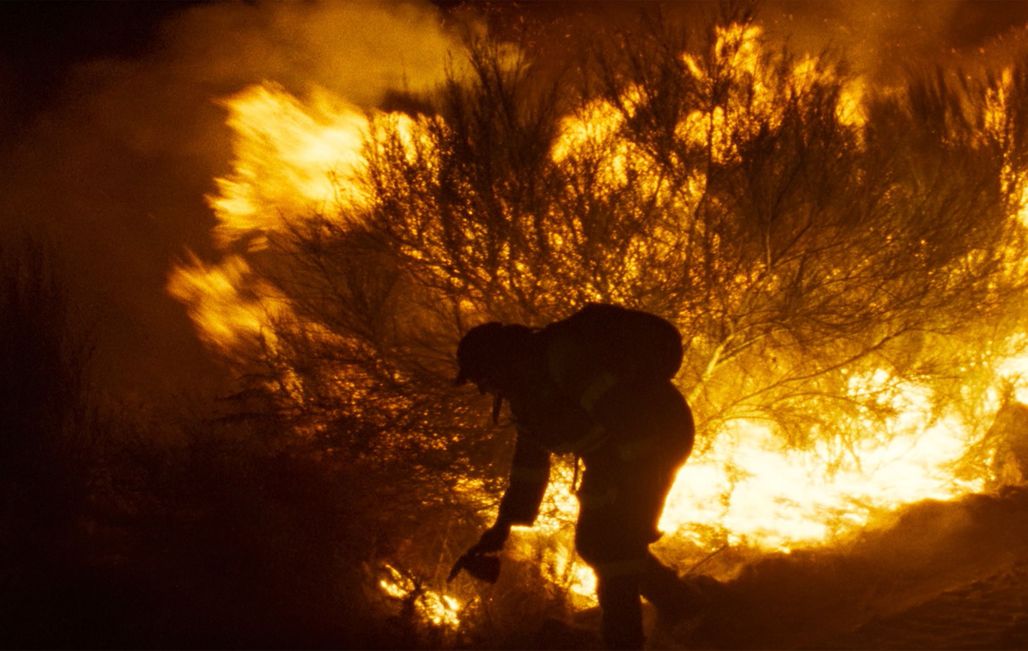
O Que Arde (Fire Will Come) as seen by Oliver Laxe

After making his first two feature films in Morocco, Todos vós sodes capitáns (You are all captains, 2010) et Mimosas (2016), the Franco-Spanish director Oliver Laxe returns to his Galician roots in O Que Arde (Fire Will Come) to be shown at Un Certain Regard.
Tell us about the origins of your film.
After my first two feature films, I felt the need to make a film at home in Galicia, in the village, abandoned today, where my mother was born. It's a very important place for me: it's my bedrock. My earliest memory of the Ancares goes back to when I was 4 years old. Like most Spanish immigrants, we used to go back to Spain every summer. My grandfather would wait for us, donkey by his side, to take us and our luggage to his house, which was at the end of a long goat track. We would enter another world, at the heart of the mountains, where the people lived in gentle and humble acceptance of nature, which they relied on and which reminded them that their existence was ephemeral. It was an attitude to life which left its mark on me forever, and which I try to convey in my films.
Can you tell us a story from the shoot?
The fire sequences were shot at the heart of the flames, inside these unbelievable infernos. We had to undergo practical and theoretical firefighter training. We shot for one summer with a restricted, technical team first, with no actors, so that we could try things out and learn what the film would demand from us. We didn't know if the film stock (we shot on Super 16) would warp in the heat or not and whether the lenses would melt!
The following summer we were ready to repeat the experience with our actors. But 2018 was one of the rainiest summers in the history of Galicia! We had wanted to make a film about people who are dominated by nature, which imposes its rules on them and lo and behold, film and real life merged to give us a great trial! Summer was drawing to an end, we were running out of filming days, the proper ending of the film was compromised, when suddenly the fire appeared! It was not enough for us to want the fire, it also had to want to be with us.
Can you tell us about your performers?
In every one of my films, I've been inspired by meeting real people who I wanted to embody as my characters. Amador was a forest warden. Today, he takes care of sick forest animals. In Spanish, Amador means "he who loves". However, he is seen by many people as he who destroys, apart from by those who do not judge him: his mother and their animals.
As far as Benedicta, who plays his mother, is concerned, I also wanted to keep her real first name, which means "she who is blessed". Benedicta was also, in her way, a blessing for our film. That woman is 83 years old…
What did you learn during the making of the film?
With every film, you are forced to learn to contain your worries and fears, which are the worst enemies of creativity. But with every film, I realise that fears and control are illusions, that life has chosen your situation. It's as if you need to abandon yourself almost completely to what life wants of you in order to be able to make good films happen. It's a bit frightening and very difficult to pull off. It's as though you must open yourself up to something which isn't you and lose control of your own film in order to make good films.
What is your view of Spanish cinema?
I'm going to tell you a story to illustrate it. One market day, a man employed to sell fruit from a stall notices that all the apples are rotten. He is outraged and says to the greengrocer: "These apples are unfit to eat!" The shopkeeper stares at him, equally outraged and completely stunned: "Those apples are not there to be eaten… they are there to be sold." That's how it is with Spanish cinema. Filmmakers in my country are living through dark years. But we really need to make our films, so we wait for no one. Hopefulness is hopeless.


